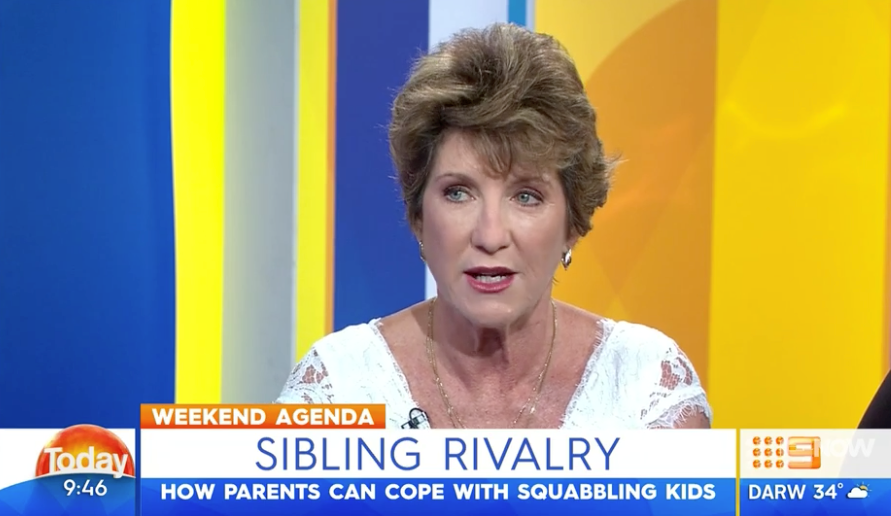Watch Dr Karen speaking on TODAY about Sibling Rivalry.
Brothers and sisters fight. Parent-reported and observational studies put the number of conflicts among young siblings (7 and under) at three to seven an hour.
Siblings offer early, on-the-job training in how to work and live with other people. They also provide a crash course in how to manage intense emotions: envy, hatred, anger. In children of all ages, but especially younger children, the urge to compete for parental attention is inborn. Among teenagers, sibling conflict helps them work out their need to differentiate from family and to set their own boundaries. The benefits of sibling disagreements include increased skills in understanding others, negotiating, persuading and problem solving.
Differentiation processes also involve siblings treating one another as sources of social comparison de-identifying from one another by selecting different niches in the family and developing distinct personal qualities.
From a very young age kids are aware of the ways in which their parents treat them relative to their siblings.
Parents intervene by teaching children strategies for working things out, and then ignore by stepping back to allow them to apply what they’ve learned. Children learn strategies from parents, how parents communicate, negotiate, argue and resolve.

One sibling may feel overlooked by parents creating jealousy. One may feel they are less special than their sibling or less capable. This can create a feeling of resentment as they may get the attention they want and need.
- Never tell them their feelings are wrong
- Avoid becoming angry or upset
- Listen and acknowledge their feelings as legitimate to them
- Never dismiss their feelings or emotions even if they do not make sense to you – they do to them
- Ignoring it may only escalate their anger
How to handle it. Be curious. Sit quietly with the child and ask questions such as:
- What is the reason you feel this way?
- What is it you need your sister / brother to do so you can feel differently?
- Is there anything that has happened to make you feel like this?
- How can you do something to feel differently
- What do you need from me to help you
The sooner we all can understand each of us is an individual with our own thoughts, responses and personality the better placed we are. Acceptance is a gift that is learned and modelled by parents.
If one sibling is giving the other a difficult time or is picking on or bullying them, this is slightly different and steps to protect the victim are necessary. All children must feel safe in their home environment and creating this safety is essential. Kids will often challenge every rule parents beleive is sacred.
Read more from Dr Karen






